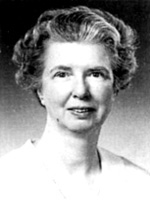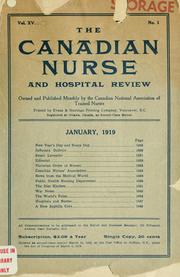The purpose of the Nursing Editors History Project is to document the editorial history of scholarly nursing journals, providing evidence of the vital leadership and influence of nursing journal editors in shaping the knowledge and practice of the discipline. This is a voluntary journalistic project, not a research study.

The idea for the NEHP was first conceived in 2015. It was started by Leslie H. Nicoll and Peggy L. Chinn. We are both nurse researchers, authors, and editors of scholarly nursing journals–several different journals between us. In the course of working on another project, we had an “Aha!”moment when we realized there is no archive or complete listing of the women and men who have served as editors of scholarly nursing journals over the years.
Modern nursing, as we know it today, is a relatively young profession. The first schools of nursing in the United States started in the 1870s. The first professional nursing journal in the US, the American Journal of Nursing, published its inaugural issue in 1900. It has been published continuously ever since. Nursing knowledge has been developed and disseminated through the published literature since that first issue of the AJN. For many decades in the 20th century, the number of scholarly nursing journals that were published could be counted on two hands. Now there are hundreds.
As nurses with many years of experience in academia and practice, we realize the critical need to share practice innovations and research findings in scholarly journals. As editors, we realize the very important role that we have as gatekeepers to provide a venue to make that information available to others. We both take our editor responsibilities very seriously and acknowledge that through our work, we have an impact on corpus of nursing knowledge. We also know, based on our personal interactions with editor colleagues, that others share this view and make their editorial role and integrity a priority in their journal responsibilities.

Given this, we found it surprising–and dismaying–to realize that no database of nursing editors exists. While one might assume that it is easy to find information on current and past editors of journals, this is not true. Many publishers have taken on the task of digitizing their journal collections with a goal to make all articles available online to current and future researchers and readers. This is a wonderful step forward, but we have discovered that many of these archives are incomplete and the front matter, which includes the page that lists the editor and associated editorial staff, is generally not included. The archives include articles and may include editorials, letters, reviews, and other materials–but not always. As a result, the archives only represent one dimension of nursing knowledge–the actual published papers. What is missing is the knowledge of the people were were in charge, in particular, the editor–whose voice was important, influential, and must be heard.
While it would be possible to go to the library and search past issues of a journal, in paper or microfilm, there is no guarantee that this process would yield complete information. As a result, we feel some urgency to capture this information before it is lost completely.
After an initial, ambitious start, we realized we needed more help to ensure that the NEHP was complete and would serve as a valuable resource to nursing scholars, present and future. We turned to colleagues in the School of Nursing at the University of Connecticut who enthusiastically signed on to become part of this important work. We are grateful for their support. The NEHP is now a collaborative venture with the Dolan Center at the School of Nursing. Since the fall of 2015, we have been working behind the scenes to make our initial idea come to life, which you can see as you peruse this website. We are excited to share the NEHP with the community of professional nurses and scholars who have an interest in this work.
We are also very grateful to the following doctoral students who assisted us in gathering information and editorials for the initial database that has been created. Many thanks to Katherine Bernier, Lucinda Canty, and Lisa Nemchek for your hard work and help!